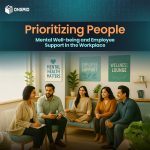Table of Contents
ToggleCriminal Record Checks
A criminal record check digs into an individual’s past criminal history to vet for potential risks. It’s crucial for employee screening as it enhances workplace safety, informs hiring decisions, reduces legal liability, and promotes trust within organizations, ultimately creating a safer and more secure work environment for everyone.
Imagine arriving at your new workplace, excited to begin your professional journey. What would happen, though, if you inadvertently teamed up with someone who had a criminal record for financial fraud, workplace violence, or data breaches? If thorough hiring procedures aren’t followed, including background checks on criminal records, this unsettling possibility becomes a reality.
Skipping these checks risks-
- Unwittingly welcoming employees with a history of theft or misconduct, jeopardizing company assets and employee safety.
- Unintentionally giving sensitive data to individuals who have previously experienced data breaches, creating expensive security flaws.
- Potentially placing customers and the organization’s reputation in jeopardy by overlooking past instances of fraud or unethical behaviour.
By neglecting these crucial checks, we not only compromise our own safety but also create an environment where trust and accountability are eroded. This can have far-reaching consequences, impacting our communities, businesses, and ultimately, the quality of life we experience.
Therefore, understanding the importance and purpose of criminal record checks, coupled with knowledge of the procedures and implications, empowers us to make informed decisions and contribute to a safer and more secure society. Let’s explore the Top 7 Questions about Criminal Record Checks, shedding light on their significance and navigating the complexities involved.
1. Why Conduct Criminal Record Checks?
A vital need for accurate and trustworthy information about a person’s past is met by these checks. Criminal record checks are an essential layer in the employee screening process, safeguarding against potential risks and fostering a secure, trusting work environment. They empower informed hiring decisions, preventing the onboarding of individuals whose past actions might endanger employees, customers, or company assets.
These checks not only minimize legal liability but also promote workplace safety and ethical conduct, ultimately shaping a culture where everyone feels protected and valued. While not infallible, criminal record checks are a crucial step towards building a stronger, more secure organization.
It is possible to search Indian and international databases to find out if the candidate has ever been involved in organized crime or has been mentioned in court. Such crimes have the potential to severely damage a company’s reputation when a criminal records check is not conducted by a qualified professional agency.
2.Who Needs a Criminal Record Check?
Usually, criminal record checks are conducted for new hires. Nonetheless, current employees may also be subject to criminal background checks, sometimes as part of routine checks that are carried out on a regular basis, or prior to a promotion, transfer, or modification of certain terms and conditions of employment.
3. What Databases Are Used for Criminal Records Check?
In addition to public records from district magistrates, states, and the Supreme Court, E-Courts Services also provides litigation-related data from the National Crime Research Bureau and the CBI’s Most Wanted Lists. The Central Vigilance Committee’s list of corrupt officials, the SEBI, RBI, and the Registrar of Companies’ databases all contain the defaulters’ list.
4. How do firms undertake the criminal record check of applicants?
There are three main ways firms undertake a criminal record check of applicants:
- Directly with the relevant authorities: This involves contacting the appropriate government agencies and requesting a criminal record check.
- Through a background screening company: These companies specialize in conducting background checks and have access to various databases.
- In-house: Some large organizations may have their own resources to conduct background checks.
5. Do criminal records affect employment?
Yes, criminal records can significantly impact employment prospects. When evaluating candidates for a job, employers frequently run background checks.
If a candidate has a criminal record, this could raise questions about their dependability, trustworthiness, and potential risks at work. Certain industries, such as finance, healthcare, and government, may be particularly stringent in their hiring process due to legal or safety requirements.
Although a criminal record does not automatically block someone from employment, considerations such as the type of offense, how relevant it is to the position, and the applicant’s rehabilitation efforts are taken into account when making a decision.
6. Can an employee be suspended based on the criminal records check?
Yes, suspension might be an option if the criminal record check turns up relevant information that affects the employee’s suitability for the position, depending on the company’s policies.
If a government worker in India is detained by the police for 48 hours or longer, they will be suspended by default.
7. What’s the difference between a criminal record check and a background check?
While often used interchangeably, there are slight distinctions between criminal record checks and background checks:
- Criminal record check: Focuses solely on an individual’s criminal history, including convictions, charges, and arrests.
- Background check: Encompasses a broader scope, including criminal records, employment history, education verification, and credit history.
Still have questions? We have answers.
Book a demo for more information and discover how we can help you with your criminal record check needs.





Leave a Reply